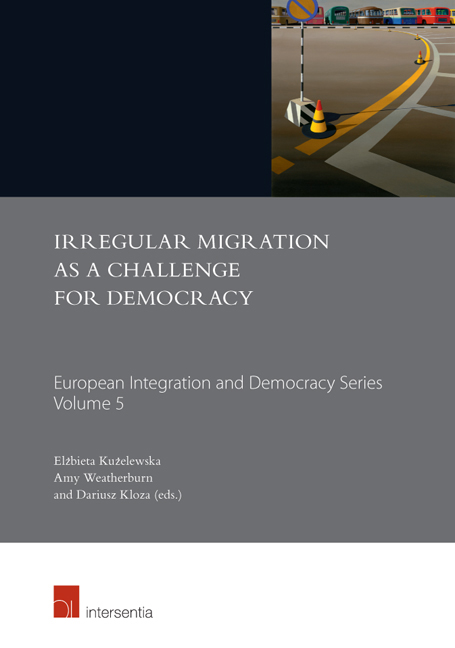Book contents
- Frontmatter
- Foreword
- Introduction
- Contents
- List of Abbreviations
- PART I The European Integration Project And Irregular Migration: Upholding Fundamental Values And Principles
- Part II Migrants, their Rights and the Limits Thereof
- Part III The Status Quo of Migration in Europe: Selected National Perspectives
Foreword
Published online by Cambridge University Press: 12 October 2018
- Frontmatter
- Foreword
- Introduction
- Contents
- List of Abbreviations
- PART I The European Integration Project And Irregular Migration: Upholding Fundamental Values And Principles
- Part II Migrants, their Rights and the Limits Thereof
- Part III The Status Quo of Migration in Europe: Selected National Perspectives
Summary
European Responses to Immigration – and its Critics: Democratic Dilemmas
Immigration has emerged as the defining issue of our times. Across the democratic states of Europe, there is deep resistance to immigration. From the vantage point of late 2017, it is hard to think of a topic more in need of analysis and understanding than the tensions between democracy and migration, so eloquently shed light on by the contributors to this volume, which brings together a wide spectrum of disciplinary and analytical perspectives. The editors deserve praise for their initiative – even courage – in taking on this topic, which is as pressing as it is delicate, raising dilemmas that can only be met through intellectual and ethical honesty. I am grateful to the authors and the editors alike, and I am honoured to be asked to contribute with the foreword.
The 2015 ‘migration crisis’ has become a major reference point in European politics. The nature of the ‘crisis’ is contested. Some see the ‘crisis’ as the onset of a new era of mass migration, others emphasise the failure of international migration management. In either case, across Europe, we see the emergence of a strong anti-immigration movement. Relatedly, we see mounting polarisation within states and mounting scepticism to existent political elites, even to the way democracy works. We have become accustomed to take democratic progress for granted, but we may find ourselves on the verge of what late Charles Tilly would call ‘de-democratization’ – a process where there is decreasing equality between state agents and citizens, where binding political consultation (state-citizens) is fading, and where protection of the population (particularly minorities) from arbitrary action by government agents is weakening. Are we entering an era of de-democratisation? The question is tied to the future of the European project itself, where deepening dissatisfaction with the European Union both divides the citizenry of its Member States and creates deep rifts between Member States. The future of European integration and the future of democracy in Europe are intrinsically connected, with immigration as the central issue of contestation.
Anti-immigration sentiments in Europe have grown steadily at least since the 1970s. It has taken various expressions, from violent attacks (on immigrants, asylum centres or various care-takers) to regular parliamentary debates.
- Type
- Chapter
- Information
- Irregular Migration as a Challenge for Democracy , pp. v - xiiPublisher: IntersentiaPrint publication year: 2018

